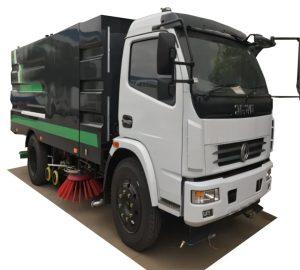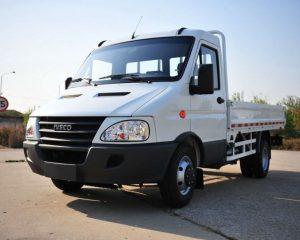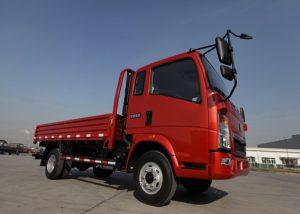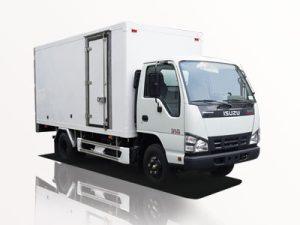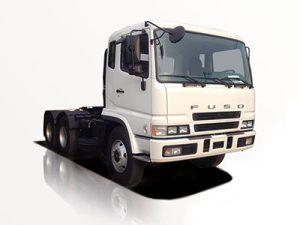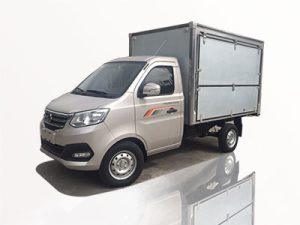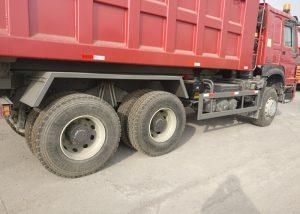Monday to Saturday - 8:00 -17:30
Everything You Need to Know About Roll Off Pup Trailers
Roll off pup trailers are an essential tool in the waste management and construction industries, designed specifically for transporting roll-off containers. Known for their versatility, durability, and efficiency, these trailers can handle various payloads, making them an excellent choice for contractors and businesses alike. In this comprehensive article, we will explore everything there is to know about roll off pup trailers, from their construction and types to their applications, benefits, and maintenance tips.
What is a Roll Off Pup Trailer?
A roll off pup trailer is a specialized trailer that works in conjunction with a roll-off truck to transport dumpster containers. Typically smaller than standard roll-off trailers, pup trailers are designed to be towed by a truck and can efficiently maneuver through tight spaces. They can hold multiple containers, thereby maximizing operational efficiency for businesses that need consistent waste removal or materials transport.
The Anatomy of a Roll Off Pup Trailer
Key Components
- Frame: Made from robust steel, providing the necessary strength to carry heavy loads.
- Axles: Typically equipped with two axles for better weight distribution and stability.
- Landing Gear: Adjustable supports that stabilize the trailer when not attached to a truck.
- Roll-off System: Mechanism that allows containers to be loaded and unloaded easily.
Trailer Dimensions and Capacities
| Dimension | Standard Size (Length x Width x Height) | Capacity |
|---|---|---|
| Pup Trailer | 24 ft x 8 ft x 4 ft | Up to 20,000 lbs |
| Roll-off Container | Various Sizes | 10 to 40 cubic yards |
Types of Roll Off Pup Trailers
Standard Roll Off Pup Trailers
These trailers are commonly used for transporting waste materials, construction debris, and recyclable items. Designed to handle heavy loads, they typically feature a load-bearing capacity ranging from 10 to 20 tons.
Specialized Roll Off Pup Trailers
Some pups are designed for specific industries, such as:
- Recycling Trailers: Built to handle recyclable materials while maintaining contamination control.
- Construction Trailers: Equipped to handle heavier materials like concrete and aggregates.
Applications of Roll Off Pup Trailers
Waste Management
Roll off pup trailers are widely used in waste management for transporting refuse from construction sites, residential areas, and commercial buildings to disposal facilities. They make waste collection more efficient.
Construction and Renovation
In construction, these trailers are invaluable for transporting various materials, like wood, metal, and concrete. Their ability to manage multiple containers helps streamline operations.
Landscaping and Tree Services
Landscapers often use roll off pup trailers to transport yard debris, soil, and mulch, allowing them to quickly and efficiently manage waste from multiple job sites.
Benefits of Using Roll Off Pup Trailers
Enhanced Efficiency
Using roll off pup trailers allows businesses to transport multiple containers at once, reducing the number of trips required for waste disposal or material delivery.
Cost-Effectiveness
With the ability to transport more tickets in fewer trips, businesses can save on fuel and labor costs, improving overall operational efficiency.
Flexibility and Versatility
The compact size of pup trailers allows for better maneuverability in tight spaces, making them ideal for urban environments and construction sites with limited access.
Tips for Choosing the Right Roll Off Pup Trailer
Consider Your Capacity Needs
Evaluate the typical load requirements for your business and select a trailer that can comfortably handle those weights and volumes.
Check Compatibility with Your Truck
Ensure that your current truck can tow the roll off pup trailer you are considering, checking both weight and towing capacity.
Inspect Build Quality
Look for trailers made from heavy-duty materials, and ensure that it has a robust roll-off system for longevity and performance.
Maintenance Tips for Roll Off Pup Trailers
Regular Inspections
Conduct regular inspections to check for wear and tear, particularly on axles, tires, and brakes to ensure safe operation.
Keep it Clean
Regularly clean the trailer to prevent rust and corrosion. Consider using a pressure washer for effective cleaning.
Lubricate Moving Parts
Ensure that the trailer’s moving parts, such as the roll-off mechanism, are adequately lubricated to maintain smooth operation.
Comparative Analysis of Roll Off Pup Trailers
| Feature | Roll Off Pup Trailer | Standard Roll Off Trailer |
|---|---|---|
| Size | Smaller, easier to maneuver | Larger, more cumbersome |
| Load Capacity | Up to 20,000 lbs | Higher capacities available |
| Cost | More cost-effective | Higher initial investment |
Frequently Asked Questions (FAQ)
1. What is the average cost of a roll off pup trailer?
The cost can vary significantly based on the brand, features, and specifications, but expect to pay between $20,000 to $35,000 for a standard model.
2. Do I need a special license to operate a roll off pup trailer?
Generally, a standard commercial driver’s license (CDL) is sufficient, but check local regulations as requirements may vary.
3. How often should I service my roll off pup trailer?
Regular maintenance checks every 3-6 months are recommended, along with immediate attention to any unusual wear or problems.
4. Can roll off pup trailers be customized?
Yes, many manufacturers offer customization options, allowing you to add specific features or adjustments based on your needs.
5. Are roll off pup trailers used only for waste management?
No, they are also used for transporting materials in construction, landscaping, and other industries requiring flexible loading solutions.
6. What is the weight capacity of a standard roll off pup trailer?
Typically, a standard roll off pup trailer can carry loads ranging from 10,000 to 20,000 lbs, depending on its construction and design.


